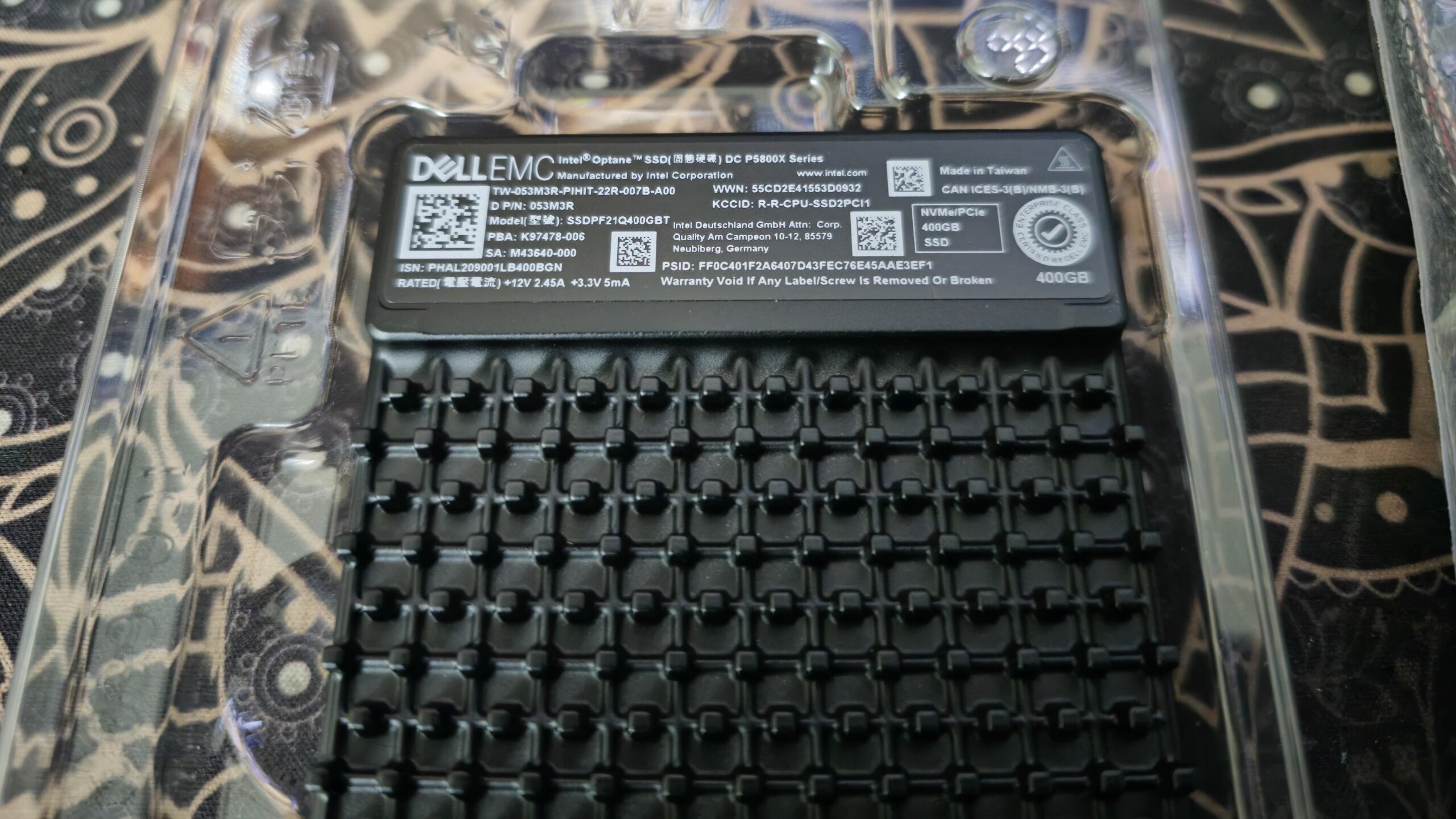I recently gave in to an impulse and purchased a “cheap” Optane p5800x drive for about $590 USD off of eBay. It was a really stupid decision, but it’s one I stand by nonetheless.

I first realized how far ahead of its time Intel Optane was when I first tried the 905p with my computer at the time. Literally everything I did felt quicker and snappier. I didn’t know enough about benchmarking at the time to properly show that improvement in user experience.
Later on, when I was first testing CPU coolers, I downloaded and tested the Final Fantasy benchmark and was shocked to see how much of an improvement it had over the SATA SSD I had been using for a games storage drive. I published those results, but that website is now gone – and so unfortunately I can’t show those results.
After receiving the Optane p5800x I bought from eBay, I ran the Final Fantasy Endwalker benchmark to see what if any performance improvement I might see in loading times with the p5800x. But first, lets take a look at the benchmark that Chris Ramseyer published for Tom’s Hardware – before he moved on to his new position as Director of Marketing for Phison.

It’s important to note that Chris’ setup used an i7-7700K, which was the fastest gaming CPU available at the time. Optane 905p had a minor performance improvement of 1-2s compared to PCI-e 3 SSDs available at the time.
Now lets take a look at my results, with an i9-14900K!

I probably should have included the results of a PCI-e 5 SSD here, but that’s something I can address in the future. What’s important is to see how the gap in performance has increased with ever faster CPUs. When Chris tested Final Fantasy on Intel’s i7-7700K, the loading time improvement gained vs good PCI-e 3 SSDs was only 1-3 seconds – but with my i9-14900K the same Optane 905p drive is ~10 seconds faster than a good PCI-e 3 SSD!
I was hoping to see an even greater performance improvement with Optane p5800x, but I probably should have known better. After all, it’s basically the same product – but with an updated controller to support PCI-e 4 bandwidth.
Given how much Optane’s performance in this loading benchmark has improved over the years with faster processors, I can’t help but wonder how much that performance might gain with future AMD Zen 5 and/or Intel Arrow Lake CPUs. I might have to test that later on this year – Stay Tuned™!
